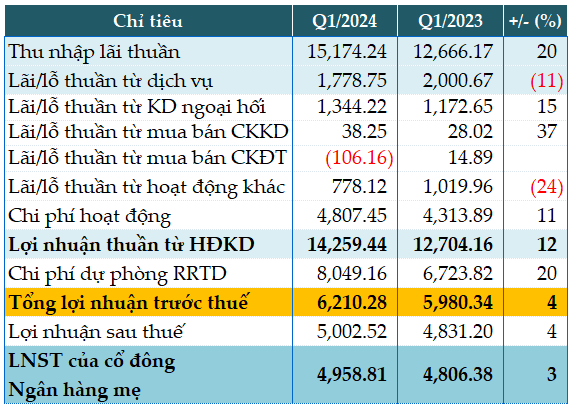The State Bank of Vietnam has announced that by the end of 2023, the outstanding debt for the real estate sector will be around 2.75 quadrillion Vietnamese dong, an increase of about 6.75% compared to the beginning of the year.
Of this, credit for business real estate loans will reach a growth rate of 22%, accounting for about 26% of the total outstanding loans in the real estate sector.
 Credit for real estate is gradually being revitalized. |
A series of solutions from the Government and the State Bank of Vietnam in recent times have had positive effects, creating favorable conditions to overcome difficulties for real estate projects. As a result, the loan ratio for business operations in the real estate sector at some banks such as HDBank, Techcombank, VPBank, SHB, MSB, MB, TPBank has increased compared to the end of 2022. (The banks that recorded a decrease in the proportion of real estate loans included VIB, Kienlong Bank, PGBank, VietBank, BVBank.)
Techcombank has the highest proportion of real estate business loans on the total outstanding loans among publicly disclosed banks, with a proportion of 35.22% as of December 31, 2023, compared to 26.44% in the same period last year.
VPBank ranks second with a proportion of real estate loans at 19%, compared to 14.39% at the end of 2022.
Real estate loans at VietBank also reach 19%, but this rate decreased by 1% compared to the end of 2022.
Other banks have also significantly increased the proportion of real estate loans, such as SHB increasing from 8.33% to 15.45%; MB increasing from 4.91% to 7.49%.
MSB recorded a slight increase from 8.75% to 8.96% of total outstanding loans, TPBank increased from 6.31% to 7.12%, while this ratio at Saigonbank remained at 6%.
According to a report from the State Bank of Vietnam, credit growth in 2023 is 13.5%. This is a great effort of the whole industry in the context of credit growth being sluggish in the first three quarters of the year.
In the context of interest rates for loans being at the lowest level in recent years, the State Bank of Vietnam has set a credit growth target from the beginning of 2024 for banks at 15%.
In its investment outlook report for February, VNDirect Securities Company predicts that the “bottlenecks” are gradually being relaxed, which is expected to help the real estate market recover from the second half of 2024.
In terms of capital, interest rates for loans have decreased, becoming more accessible to investors, and may support housing demand. VNDirect also expects net profit margins of real estate companies to recover in the coming quarters.
Consumer real estate loans continue to decrease, reflecting the cautiousness of buyers. However, the average mortgage interest rate is currently about 11%, down from its peak of 13-14% per year.
“The expected decrease in interest rates will improve the demand for real estate purchases, thereby supporting the cash flow of investors. We believe that the residential real estate market has passed its most difficult period and will show a clearer recovery from the second half of 2024,” evaluated the VNDirect analysis group.
To promote the flow of credit into the real estate market, in addition to the detailed plans that businesses set for themselves, some real estate companies believe that the banking industry needs to be more “open” in terms of credit conditions. Specifically, in terms of procedures, the need to simplify documents, shorten the approval and credit disbursement time to below 1 month. In addition, it is necessary to further reduce interest rates, especially for businesses with good credit history and feasible business plans.
In addition, companies also propose that the Government extend the loan restructuring period; continue to allow the use of 34% of short-term capital for medium and long-term loans (instead of reducing it to 30%); expand the room for banks participating in real estate market restructuring; extend the loan period for industries directly related to real estate.
Experts believe that “loosening” credit is essential in the current stage to support real estate businesses, which are already in a difficult position and are preparing to face the “storm” of corporate bond maturity in 2024.
Ngoc Mai









































